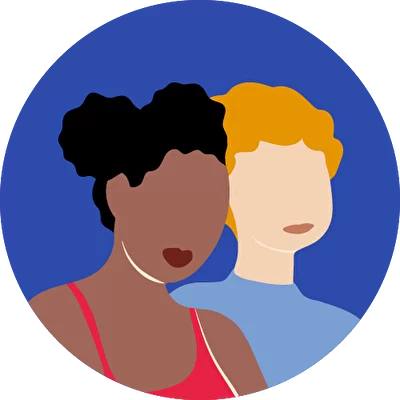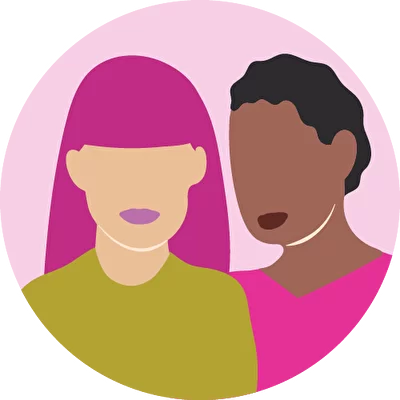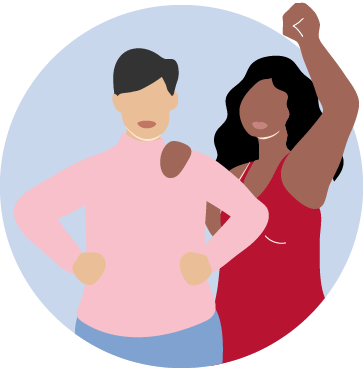
Peer Supporters
“It really helped some of our young people feel like they had a voice.”
The Your Best Friend Peer Supporter packs came about because throughout the Your Best Friend project we had lots of requests for spaces for young people to talk to each other about toxic relationships. Our hope is that young people can use them to lead peer support spaces on their own, or a youth worker can support young people to run them.
Everything here has been made with young people and we want you to take it, use it, and get it front of more young people
The Your Best Friend Peer Supporter packs came about because throughout the Your Best Friend project we had lots of requests for spaces for young people to talk to each other about toxic relationships. Our hope is that young people can use them to lead peer support spaces on their own, or a youth worker can support young people to run them.
Everything here has been made with young people and we want you to take it, use it, and get it front of more young people
- The Power Gap - looking at power in relationships
- Blinded By The Butterflies - reflecting on romance in society
- Treading a Fine Line - learning how to gently challenge people with other opinions
- The Time to Step In - practicing decision making in complex situations
- Feeling Helpless - learning self-care skill
- It’s Not Normal - identifying areas to make social change for other young people
The sessions are run over six weeks and cover these topics:
Download the resources
There are two parts to the resource to help you run peer support spaces: the peer Support Session plans which have content, questions and activities to generate discussions and the Facilitation Pack, which helps you plan for practical elements of running the sessions like finding a building, writing a group contract and making sure people feel listened too. These are to help you host spaces to talk about toxic relationships and how to help a friend if you think something isn’t right in their relationship.
Peer Supporter
Session Plans
Session Plans
Peer Supporter
Facilitation Pack
Facilitation Pack


Peer Supporters Practitioner Training
Watch advice to help you run the peer supporter sessions, either as a young person or a youth worker supporting a young person
To keep helping young people, we need to know what works. Please support your young people to let us know, via this 2 minute survey, whether the resources have helped them feel more confident to spot toxic behaviours or talk to a friend.
Doing so will help us tell the Government and those funding projects for young people what we need more of.
Doing so will help us tell the Government and those funding projects for young people what we need more of.

Your feedback is crucial
